CERN's New Particle Accelerator Promises Window on Big Bang
Published:
25 July 2004 y., Sunday
Scientists probing something as big as the origins of the universe sometimes need equipment to match. At the European nuclear research center CERN in Geneva, they're building the most powerful particle accelerator ever. The Large Hadron Collider, as it's called, is expected be able to recreate the conditions that existed at the time of the Big Bang, when the universe was born. Scientists say they hope the new tool will help them unravel the mysteries of matter and energy, and confirm or demolish existing theories.
Contrary to what its name implies, the Big Bang was not necessarily an explosion. Scientists consider the Big Bang to be more of a marker to note that the universe had a beginning. It is the moment in which the universe, space and time were created. CERN Physicist Richard Jacobsson says scientists do not know why or how the Big Bang occurred. But big particle accelerators such as the Large Hadron Collider help them to understand the process.
When the Large Hadron Collider (LHC) is completed in 2007, the superconducting magnets in the machine will operate at 271 degrees, just above absolute zero. However, Mr. Jacobsson says that the temperature created in the proton-proton collisions will be one billion times hotter than at the center of the sun.
Some 6,500 scientists from more than 80 countries currently collaborate on hundreds of ongoing experiments at CERN. The world's biggest particle physics laboratory is celebrating its 50th anniversary this year.
Šaltinis:
voanews.com
Copying, publishing, announcing any information from the News.lt portal without written permission of News.lt editorial office is prohibited.
The most popular articles

The European Commission announced today the award of three of the six contracts for the procurement of Galileo’s initial operational capability.
more »
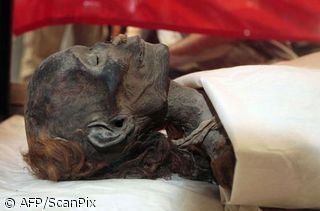 The "Mummies of the World" exhibit opens in Los Angeles featuring 150 specimens of human and animal remains and related artifacts from across the globe.
more »
The "Mummies of the World" exhibit opens in Los Angeles featuring 150 specimens of human and animal remains and related artifacts from across the globe.
more »
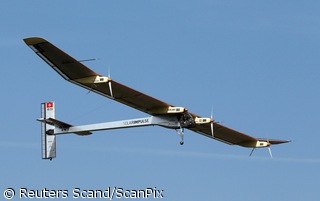 The solar-powered aircraft Solar Impulse landed successfully after demonstrating its capability to fly through a full day-and-night cycle, powered and charged only the the sun.
more »
The solar-powered aircraft Solar Impulse landed successfully after demonstrating its capability to fly through a full day-and-night cycle, powered and charged only the the sun.
more »
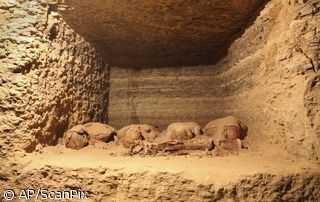 An Egyptian archaeological team has discovered the tombs of a father and son who were overseers of the royal scribes of ancient Egypt.
more »
An Egyptian archaeological team has discovered the tombs of a father and son who were overseers of the royal scribes of ancient Egypt.
more »
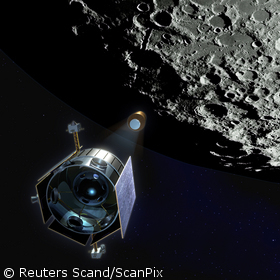 The Japanese space probe Hayabusa lights up the skies over Australia as it returns to Earth after a seven year journe.
more »
The Japanese space probe Hayabusa lights up the skies over Australia as it returns to Earth after a seven year journe.
more »
 Commission seeks to expand and upgrade vocational education and training.
more »
Commission seeks to expand and upgrade vocational education and training.
more »
 The European investment bank(EIB) has signed today in Belgrade with the Serbian Minister of Finance Diana Dragutinovic and in the presence of the Minister of Education Zarko Obradovic a EUR 50 million financing loan aimed at supporting the School modernisation programme of the Country.
more »
The European investment bank(EIB) has signed today in Belgrade with the Serbian Minister of Finance Diana Dragutinovic and in the presence of the Minister of Education Zarko Obradovic a EUR 50 million financing loan aimed at supporting the School modernisation programme of the Country.
more »
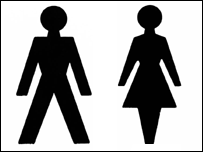 The European Commission today presented a new study which examines how gender inequality in education is addressed in European countries.
more »
The European Commission today presented a new study which examines how gender inequality in education is addressed in European countries.
more »
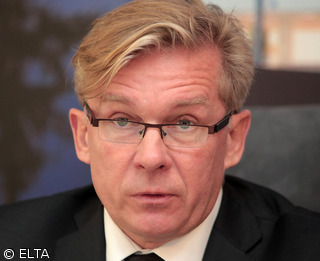 Lithuania intends to continue its support to the Vilnius-based European Humanities University (EHU) until this education institution is able to be settled again in Minsk, country‘s Minister of Foreign Affairs Audronius Ažubalis said on 2 June in Vilnius, addressing the participants of the third EHU Trust Fund Donor Assembly.
more »
Lithuania intends to continue its support to the Vilnius-based European Humanities University (EHU) until this education institution is able to be settled again in Minsk, country‘s Minister of Foreign Affairs Audronius Ažubalis said on 2 June in Vilnius, addressing the participants of the third EHU Trust Fund Donor Assembly.
more »
 Study shows cost of responses to global warming is lower today than in 2008, when the EU adopted its climate change goals.
more »
Study shows cost of responses to global warming is lower today than in 2008, when the EU adopted its climate change goals.
more »
 Androulla Vassiliou, the European Commissioner responsible for education and culture, will discuss future policy priorities at a meeting with Andreas Demetriou, the Cypriot Minister of Education and Culture, in Brussels tonight.
more »
Androulla Vassiliou, the European Commissioner responsible for education and culture, will discuss future policy priorities at a meeting with Andreas Demetriou, the Cypriot Minister of Education and Culture, in Brussels tonight.
more »